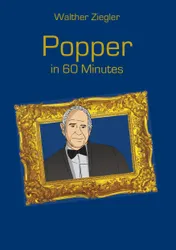In a career spanning 60 years, Sir Karl Popper has made some of the most important contributions to the 20th century discussion of science and rationality. The Myth of the Framework is a collection of some of Popper's most important material on this subject.
Sir Karl discusses such issues as the aims of science, the role that it plays in our civilization, the moral responsibility of the scientist, the structure of history and the perennial choice between reason and revolution. In doing so, he attacks intellectual fashions (like positivism) that exaggerate what science and rationality have done, as well as intellectual fashions (like relativism) that denigrate what science and rationality can do. Scientific knowledge, according to Popper, is one of the most rational and creative of human achievements, but it is also inherently fallible and subject to revision.
In place of intellectual fashions, Popper offers his own critical rationalism - a view that he regards both as a theory of knowledge and as an attitude towards human life, human morals and democracy.
There are nine essays in this collection: 'The Rationality of Scientific Revolutions'; 'The Myth of the Framework'; 'Reason or Revolution'; 'Science: Problems, Aims and Responsibilities'; 'Philosophy and Physics'; 'The Moral Responsibility of the Scientist'; 'A Pluralist Approach to the Philosophy of History'; 'Models, Instruments, and Truth'; 'Epistemology and Industrialization'. In his Introduction, he writes: ‘All, or almost all, the papers collected in this volume are written to defend rationality and rational criticism. It is a way of thinking, and even a way of living: a readiness to listen to critical arguments, to search for one’s own mistakes, and to learn from them. It is, fundamentally, an attitude that I have tried to formulate (perhaps first in 1932) in the following two lines: ‘I may be wrong and you may be right, and by an effort, we may get nearer to the truth.’ This is vintage Karl Popper.




















